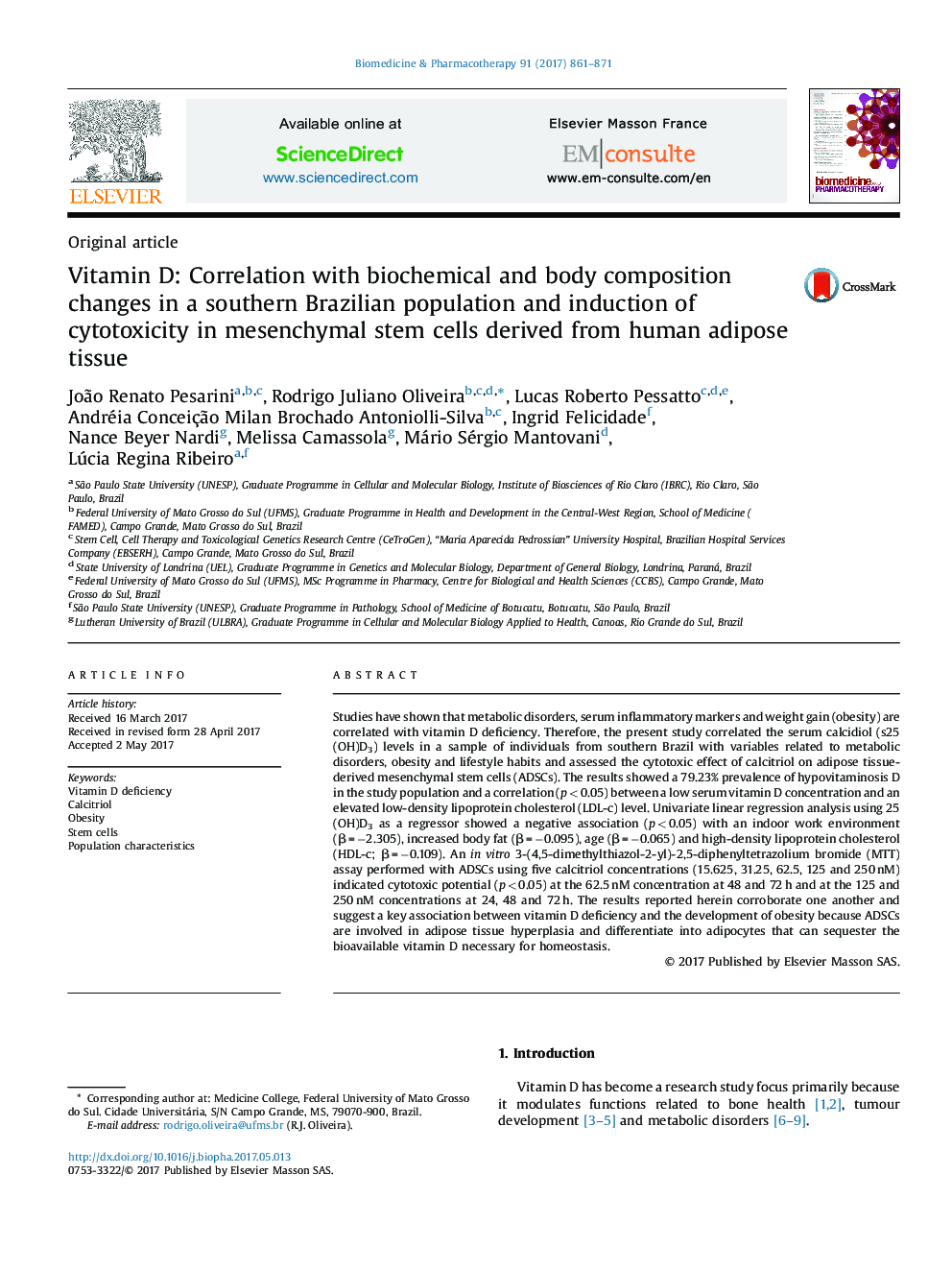| Article ID | Journal | Published Year | Pages | File Type |
|---|---|---|---|---|
| 5552995 | Biomedicine & Pharmacotherapy | 2017 | 11 Pages |
Abstract
Studies have shown that metabolic disorders, serum inflammatory markers and weight gain (obesity) are correlated with vitamin D deficiency. Therefore, the present study correlated the serum calcidiol (s25(OH)D3) levels in a sample of individuals from southern Brazil with variables related to metabolic disorders, obesity and lifestyle habits and assessed the cytotoxic effect of calcitriol on adipose tissue-derived mesenchymal stem cells (ADSCs). The results showed a 79.23% prevalence of hypovitaminosis D in the study population and a correlation (p < 0.05) between a low serum vitamin D concentration and an elevated low-density lipoprotein cholesterol (LDL-c) level. Univariate linear regression analysis using 25(OH)D3 as a regressor showed a negative association (p < 0.05) with an indoor work environment (β = â2.305), increased body fat (β = â0.095), age (β = â0.065) and high-density lipoprotein cholesterol (HDL-c; β = â0.109). An in vitro 3-(4,5-dimethylthiazol-2-yl)-2,5-diphenyltetrazolium bromide (MTT) assay performed with ADSCs using five calcitriol concentrations (15.625, 31.25, 62.5, 125 and 250 nM) indicated cytotoxic potential (p < 0.05) at the 62.5 nM concentration at 48 and 72 h and at the 125 and 250 nM concentrations at 24, 48 and 72 h. The results reported herein corroborate one another and suggest a key association between vitamin D deficiency and the development of obesity because ADSCs are involved in adipose tissue hyperplasia and differentiate into adipocytes that can sequester the bioavailable vitamin D necessary for homeostasis.
Related Topics
Health Sciences
Medicine and Dentistry
Oncology
Authors
João Renato Pesarini, Rodrigo Juliano Oliveira, Lucas Roberto Pessatto, Andréia Conceição Milan Brochado Antoniolli-Silva, Ingrid Felicidade, Nance Beyer Nardi, Melissa Camassola, Mário Sérgio Mantovani, Lúcia Regina Ribeiro,
